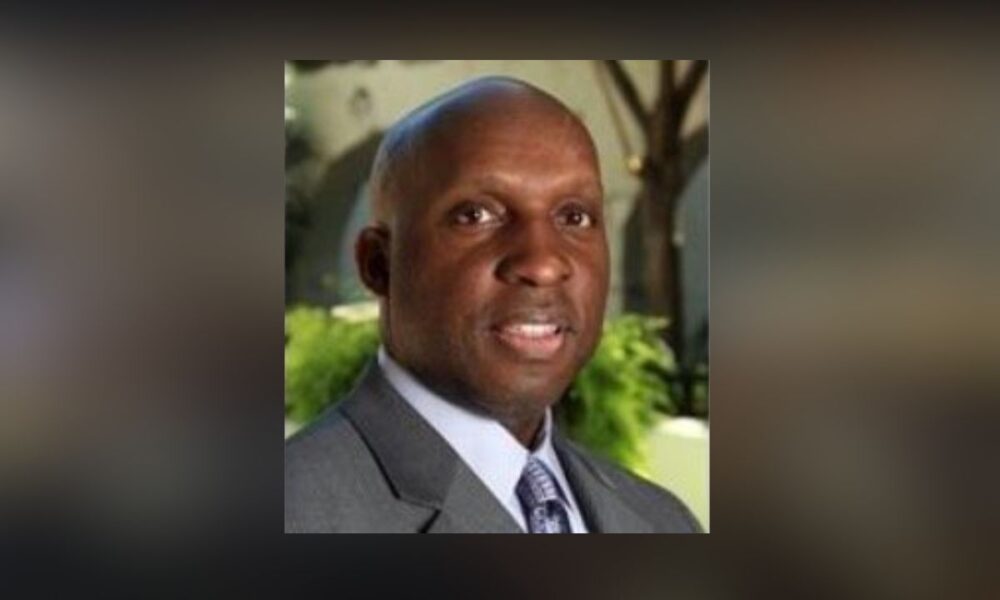Austin City Manager T.C. Broadnax — one of the highest-paid city officials in the country at $488,800 a year — expensed roughly 150 lunches totaling $3,300 during his first year in office, according to an Austin American-Statesman review of discretionary spending from May 2024 to May 2025. The charges may violate city policy.
The charges, mostly at the upscale salad chain Sweetgreen and averaging about $20 per meal, come as Austin faces a looming budget shortfall projected to hit tens of millions by decade’s end.
Broadnax began his tenure in Austin on May 6, 2024 — a job he applied for just four days after resigning as Dallas city manager, where he received over $400,000 in severance pay on his way out. In April 2024, Dallas Mayor Eric Johnson questioned whether council members colluded to push Broadnax out — triggering a severance clause in his contract.
“… To be clear, he is not the first city manager to have a severance clause. Other cities have paid large severances to city managers, although not in this way — and not to someone who was already lining up a job somewhere else. None of that makes this situation any easier to swallow as a taxpayer. This is still about your money — and it’s not a pittance,” the mayor wrote in a newsletter to city residents.
During his seven years as Dallas City Manager, Broadnax faced criticism over inefficiency, bureaucratic delays, and mismanagement — especially in the city’s broken permitting system.
In Austin, Broadnax initially defended the lunch expenses. “I obviously want to be healthy,” he said in a July interview. “I was advised that that’s how we’ve approached lunches here.”
Citing time constraints that kept him in City Hall, Broadnax said the lunches were justified. But under pressure, he later pledged to repay $3,780, stating: “This examination of discretionary spending has highlighted a need to do a better job of educating people on the policy and ensuring that it is being followed carefully and precisely.”
The controversy comes as Austin faces a bleak financial forecast. This month, Broadnax proposed a $6.3 billion austerity budget that includes police and firefighter staffing adjustments, reduced affordable housing funds, and a $14.1 million draw from reserves to offset limited property tax revenue. The City Council is set to vote on the budget in August.
Mayor Kirk Watson addressed the financial crisis in March, told the Real Estate Council of Austin, “If the keyboard warriors want to troll through the city of Austin budget to find actual inefficiencies and waste, I’m all for it, because we’re going to need everything we can find in this coming budget cycle.”
City policy prohibits routine meal expenses, stating, “It is never appropriate to use City funds to pay for employee meals or food on a regular basis.”
Exceptions apply only for emergencies or official events — and the rules warn against even the appearance of impropriety.
SMU political science professor Cal Jillson said the lunch charges likely violated the policy, telling the Statesman, “Bring a sandwich for Christ’s sake.”
The Statesman’s review revealed a broader culture of discretionary spending at City Hall. Broadnax’s office spent $4,700 on retirement parties for four executives — including $1,700 at Chuy’s for one event. Staff also expensed $344 worth of pre-made protein shakes for the office of Eddie Garcia, who oversees public safety, and $300 on energy drinks for officers assigned to Broadnax’s security detail.
Garcia, unaware of the shake charges, said, “I’m putting a stop to it right now.”
Ethics experts criticized the spending.
“Even if the amounts are small, choosing not to expense routine meals or discretionary items sends a powerful message about shared sacrifice and commitment to good governance,” said Miha Vindis, a political science professor at Texas State University.
Central Texas ethics attorney Andrew Cates said Austin’s spending policy is vague. “There’s just all kinds of ways that you can parse the words to make it okay,” he told the Statesman. He warned such spending can erode public trust — especially during a fiscal crunch.
Broadnax acknowledged the need for reform. “The vast majority of City of Austin employees who use a City-issued credit card do so in a manner that is 100% compliant with our policy,” he said, while admitting that “it has been a past practice to expense working lunches.”
He committed to addressing the “lack of understanding” immediately. The controversy has sparked calls for tighter oversight as Austin navigates its budget crisis.


